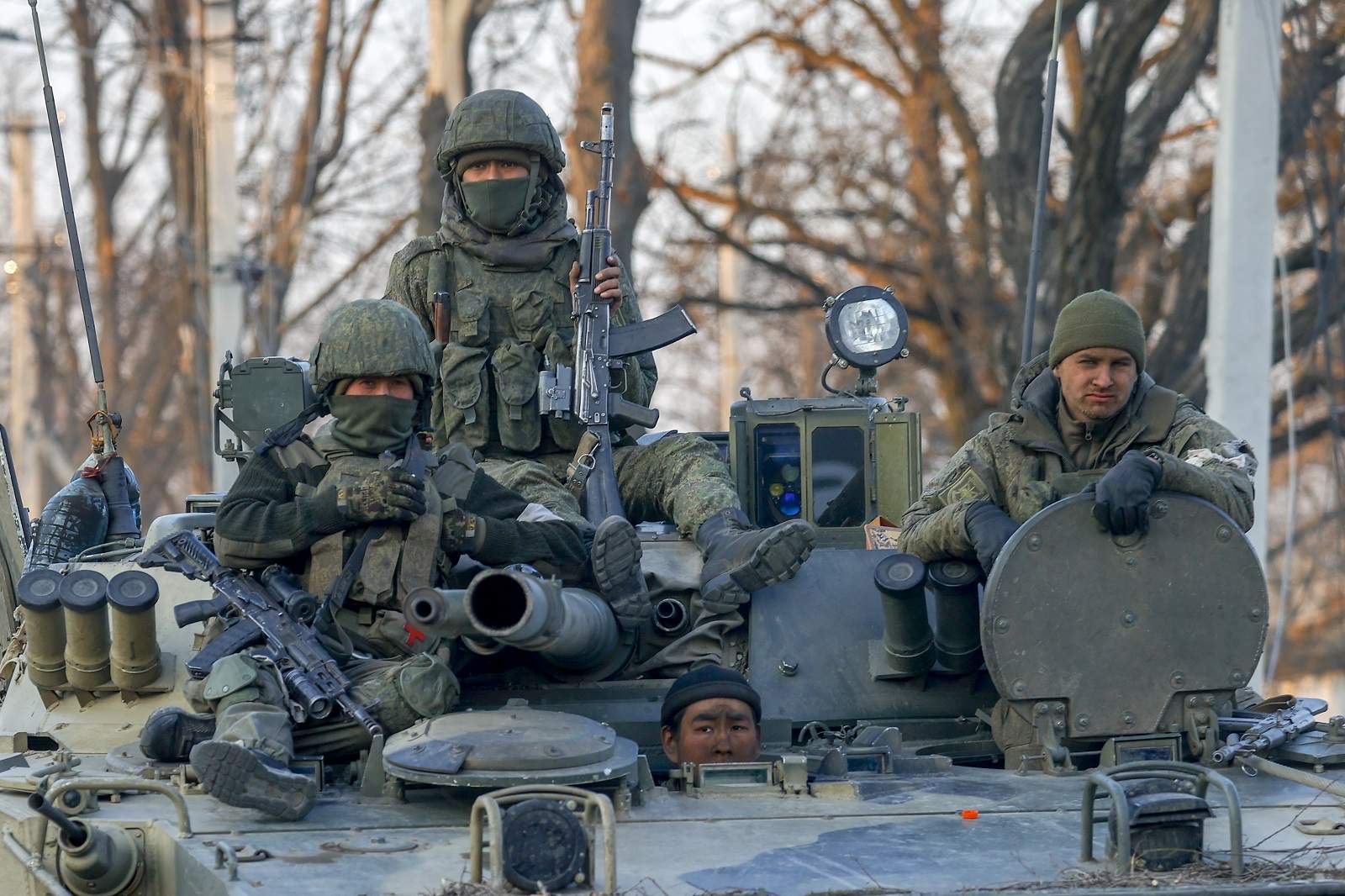by Eric Zuesse, The Duran:

America and its entire NATO are at war against Russia in the battlefields of Ukraine, and (though its Government and news-media claim otherwise) are losing that war like they did against Afghanistan, and against Libya, and against Iraq, and against Vietnam, and against China, and against Korea. Even without the assistance of America’s colonies in Europe (NATO/EU), America spends (in fact, though not in the jiggered commonly published American propaganda) 17 times as much annually on its military as does Russia: $1.5T in America, versus $70B annually in Russia. How can this be?
TRUTH LIVES on at https://sgtreport.tv/
Like that “$1.5T” link explains, America budgets lots of its military spending to be spent from Departments other than its Defense Department, such as from its Homeland Security Department, Treasury Department, Energy Department, and Veterans Affairs Department, so as to enable its propaganda agents, such as the Stockholm International Peace Research Institute (SIPRI), to publish ONLY the Defense Department’s expenditures for comparison with other nations’ total military expenditures (which are far more honestly reported than America’s), and so to make America’s seem to be a smaller percentage of the global total than is really the case. Thus, for example, SIPRI states that “US military spending reached $877 billion in 2022, which was 39 per cent of total global military spending,” and that, “Russian military spending grew by an estimated 9.2 per cent in 2022, to around $86.4 billion.” Whereas that Russian figure is honest, the American figure is a blatant lie, because it’s only the Defense Department’s budget, NOT the full $1.5T of military spending in all Departments (like Russia’s, and other nations’, figures, actually are). In reality, America accounts for 50% of global military spending, not 39% as SIPRI alleges.
Where is all that excess American money going?
On 21 September 2020, the “independent” Defense Department think tank CSIS headlined “Band of Brothers: The Wagner Group and the Russian State” and discussed a basic difference between private military “contractors” who are mercenaries in the U.S., but who are instead actually instead controlled directly by Russia’s Government in Russia, because:
The Russian constitution specifically stipulates that all matters of security and defense belong solely to the state. Consequently, the establishment of private military companies is illegal in Russia, despite repeated efforts of certain powerful groups to change that. Pro-legalization arguments mostly center around the wide international practice of using PMCs, which would justify Russia doing the same. According to news reports, however, the Ministry of Defense, the Ministry of Foreign Affairs, and other security agencies are strongly against lifting this ban.
However, there are a number of important loopholes in the Russian legislative system. While individuals are not allowed to serve as mercenaries, per the Russian Criminal Code, state-run enterprises are permitted to have private armed forces and security foundations. Combined with a usually dense de facto network of subcontractors, this allows Russian citizens to work for private military companies despite the nominal ban. Another workaround is to register companies abroad, which allows Russian authorities to ignore the operations of the “foreign” PMC. As Candace Rondeaux argues, the likely motivation of the Russian state to not push for the full legalization of private military companies is that this legal opacity adds to the overall ambiguity surrounding these entities; thus it increases the state’s freedom of maneuver in using them.
In practice, the legal environment is so permissive that most Russian private military companies prefer to recruit exclusively Russian citizens. Meanwhile, the formal ban on serving as a mercenary provides the Russian state with strong legal leverage over PMC operatives, ensuring their overall compliance with the state’s preferences.
Wagner Group is far from being the sole Russian private military company. Anna Maria Dyner lists several other Russian private military companies that have operated abroad, such as the E.N.O.T. Corporation in Syria and the Feraks group in Iraq, Afghanistan, Iraqi Kurdistan, and Sri Lanka, as well as the Antiterror-Orel Group and many others.
Similarly, Russia’s weapons-manufacturers are not, like in the U.S. and its colonies, privately controlled by their controlling private investors — who are all (or virtually all) among America’s approximately 800 billionaires. The Saker was correct when he said in his 5 July 2028 “Book Review – Losing Military Supremacy by Andrei Martyanov” that, “unlike their US counterparts, Russian weapons are designed to kill, not to make money.” And, WOW — do they make money! Beginning at around 1990, something amazing happened (as is shown in the graph that’s linked-to there): all of a sudden, the market-values of “Defense” firms soared upward like a rocket, but the market-values of “Industrials,” and of the general stock “Market,” merely continued rising at their prior normal rates of growth. The Soviet Union ended in 1991, and the controlling owners of “Defense” firms — military contractors such as Lockheed Martin — became suddenly quite worried about whether or where the next wars would be targeted against. What would there now be to juice their weapons-sales? Jihadists, Islamic terrorists, came along just in time to save the day for them, and the weapons-markets mushroomed for those investors. But, then, in 2014, just at the time when the anti-jihadist scares were starting to fade in Americans’ rear-view mirrors, Obama’s coup took control over the nearest-to-The-Kremlin of all the countries that border Russia, Ukraine, and Obama’s newly-installed and rabidly anti-Russian regime there got the manufacturers of missiles and nuclear weapons fired up, no longer against “terrorists” but against Russia, to continue this “Defense” boom into yet new frontiers of mega-profits.




